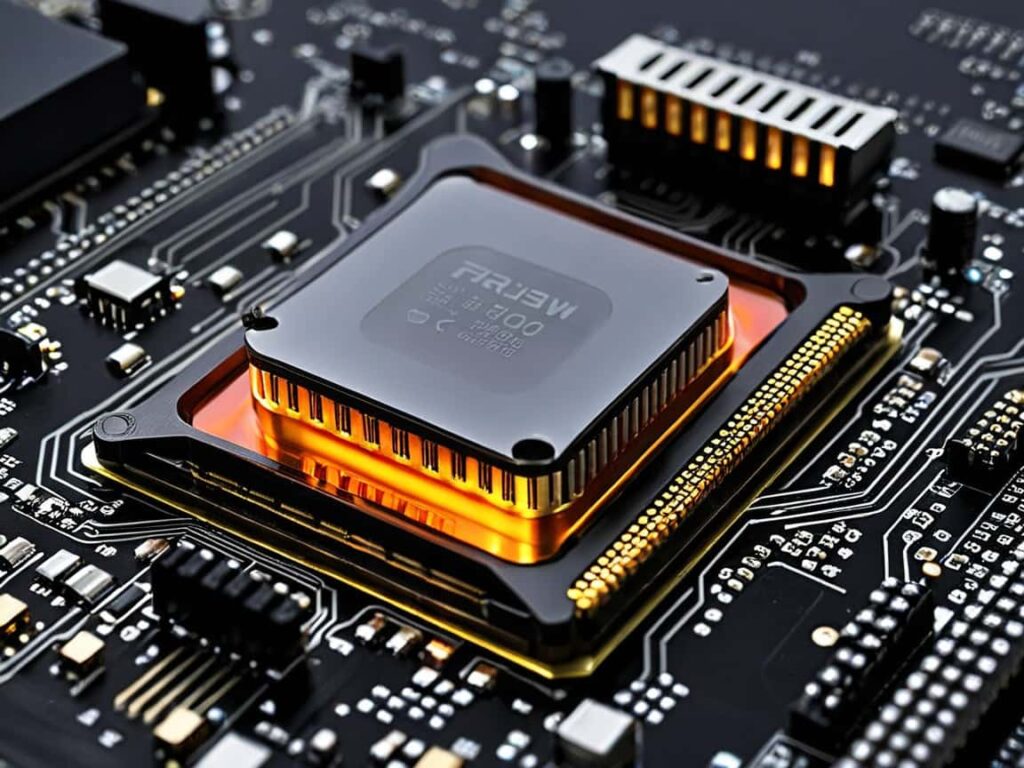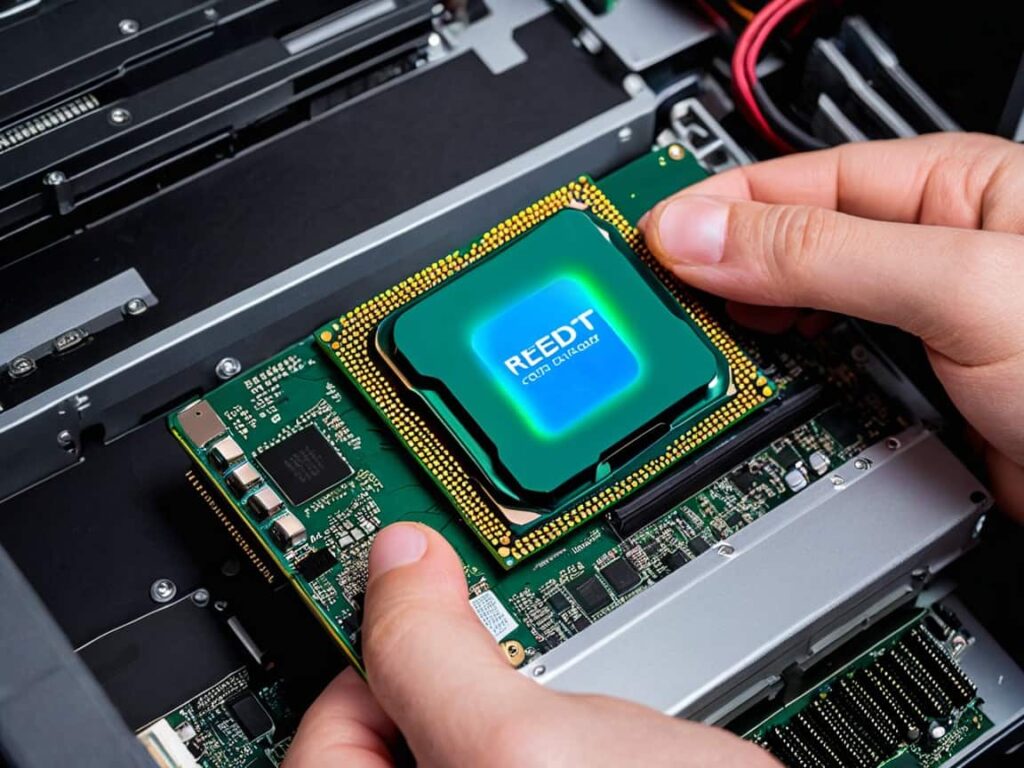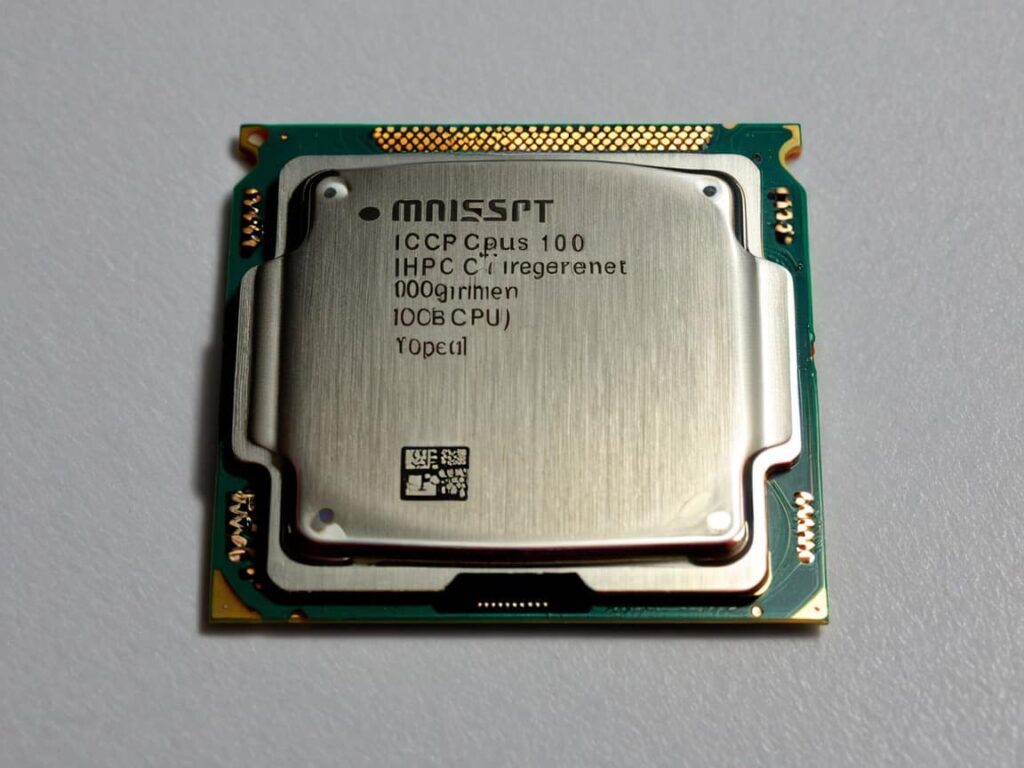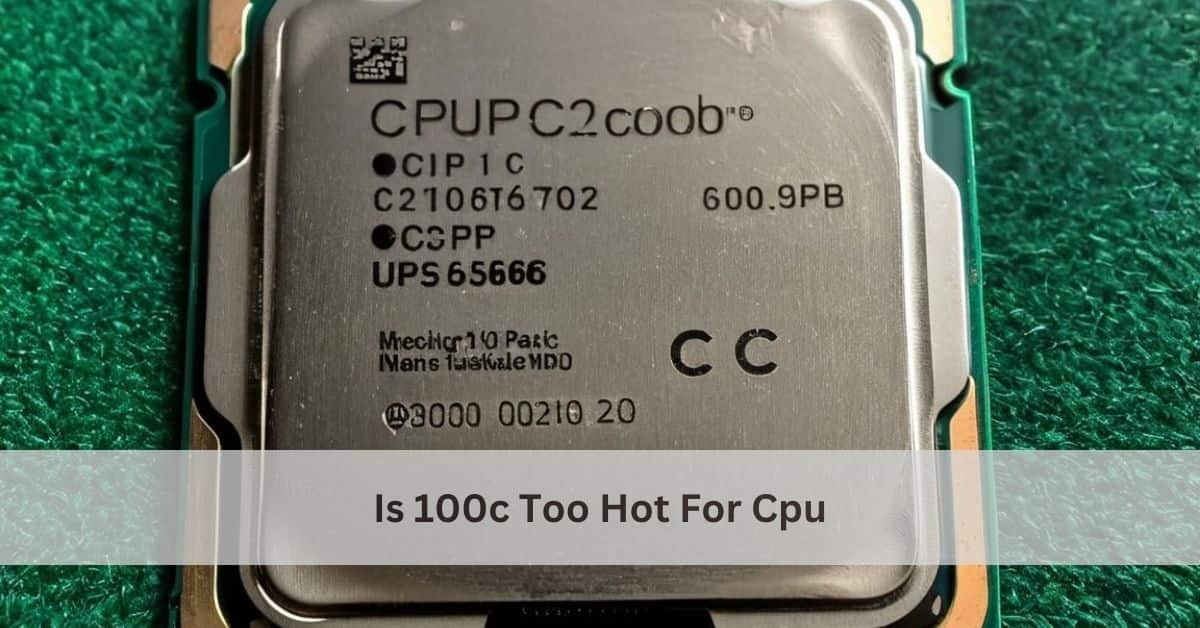When my 100°C I noticed my PC slowing down and even shutting off during heavy tasks. It turned out that this temperature is too hot and can damage the processor over time. Cleaning the fans and applying fresh thermal paste fixed the issue, keeping my CPU cooler and running smoothly.
Yes, 100°C is too hot for a CPU and can cause overheating, slowdowns, or even permanent damage. Most CPUs operate best below 85°C under load. If your CPU reaches 100°C, check your cooling system immediately.
Stay tuned with us as we dive into the topic, “Is 100°C Too Hot for a CPU?” We’ll explore why it happens, the risks, and how to keep your CPU safe and cool. Don’t miss it!
Is 100 a good CPU temperature?

A CPU temperature of 100°C is not safe and shows that it is overheating. Most CPUs work best below 85°C during heavy tasks, and much cooler when idle. At 100°C, the CPU may slow down to cool itself or even shut down to avoid damage. High temperatures like this can hurt the CPU over time and make it less efficient.
If your CPU gets this hot, take action quickly. Check if the cooling fans are clean and working well. Apply new thermal paste if the old one is worn out. Make sure your PC has good airflow and isn’t working too hard. Fixing these problems will help keep your CPU cool and running smoothly.
Is 100 degrees Celsius hot for a CPU on Reddit?
- Yes, it’s too hot: Most Reddit users agree that 100°C is dangerous for a CPU and can lead to performance issues or long-term damage.
- Causes of overheating: Common causes shared include poor cooling, old thermal paste, dust in fans, or overclocking without proper setup.
- Signs to watch for: Users report issues like thermal throttling, sudden shutdowns, or high fan noise when their CPU overheats.
- Solutions: Redditors often suggest cleaning the cooling system, reapplying thermal paste, improving airflow, or lowering CPU usage to fix the issue.
Read More: What Games Are Cpu Intensive – Full List Revealed!
How much Celsius is too hot for CPU?
Safe Range:
The safe temperature range for most CPUs is below 85°C during heavy use. For normal tasks, temperatures between 40°C and 70°C are ideal. Staying within this range helps ensure better performance and a longer CPU lifespan.
Danger Zone:
The danger zone for a CPU starts above 90°C. At this point, the processor may slow down (thermal throttling) to reduce heat and protect itself. Staying in this range for too long can shorten the CPU’s lifespan or cause permanent damage.
Critical Limit:
The critical limit for most CPUs is around 100°C. Temperatures above this can cause permanent damage and lead to system shutdowns to prevent failure. It’s essential to fix any cooling issues before the temperature reaches this level to protect your CPU.
Ideal Cooling:
Ideal cooling for a CPU is maintaining temperatures between 40°C and 70°C during normal use. Under heavy tasks like gaming, it’s best to keep the temperature below 85°C. Good airflow, clean fans, and proper thermal paste can help achieve these temperatures.
Is 100c Too Hot For Cpu reddit:

On Reddit, many people say that 100°C is too hot for a CPU and can cause damage over time. This high temperature usually means the cooling system isn’t working well, like dusty fans, old thermal paste, or poor airflow.
While CPUs can handle high temperatures briefly, staying at 100°C can slow down performance or even cause the system to shut down to prevent damage.
If your CPU hits 100°C, it’s important to fix it fast. Many users suggest cleaning out the dust, replacing old thermal paste, and improving airflow in your PC case. Upgrading your cooling system, like adding more fans or using a better heatsink, can also help keep the temperature safe.
CPU running at 100 degrees while gaming:
If your CPU is running at 100°C while gaming, it’s overheating and can cause performance problems or even damage. At this temperature, the CPU may slow down to avoid damage or shut off completely, which can ruin your gaming experience.
To fix this, check your cooling system. Make sure the fans are clean and working well. You might also need to apply new thermal paste to help the heat move away from the CPU better. If the problem keeps happening, consider adding a better cooler or improving airflow in your PC.
Read More: Bad Cpu Type In Executable Mac – Here’s How To Fix It!
Is 100c Too Hot For Cpu laptop:
1.Overheating Risk:
100°C is too hot for a laptop CPU, as it can cause overheating and lead to performance drops or damage over time.
2. Throttling:
At 100°C, your laptop CPU may throttle itself, meaning it slows down to prevent further heat buildup, affecting performance during tasks like gaming or video editing.
3. Potential Shutdown:
Most laptops will shut down automatically to protect the CPU when it reaches critical temperatures like 100°C, which can interrupt your work or gaming session.
4. Cooling Issues:
If your laptop reaches 100°C regularly, it may have poor cooling, blocked vents, or thermal paste issues, leading to inefficient heat dissipation.
5. Immediate Action Needed:
It’s important to address the issue quickly by cleaning vents, improving airflow, or using a cooling pad to prevent long-term damage to your laptop.
Read More: Games That Are Cpu Intensive – Find Out If Your Pc Can
CPU 100 degrees on startup
- Immediate Concern: A CPU reaching 100°C on startup is a sign of a serious cooling issue and can cause permanent damage if not addressed quickly.
- Cooling System Check: Ensure your cooling fans are working, clean, and properly installed, as dust buildup can block airflow and prevent the CPU from cooling down.
- Thermal Paste: Old or insufficient thermal paste between the CPU and cooler can lead to poor heat transfer, so consider reapplying it to improve cooling efficiency.
- Overheating Prevention: If the temperature remains high on startup, check for faulty hardware, or consider using a better cooling solution or more airflow in your PC case.
My CPU is at 100 degrees Fahrenheit!

If your CPU is at 100°F, that’s a normal and safe temperature. CPUs usually run between 86°F and 185°F during regular use, so 100°F is cool and doesn’t cause any issues.
If you notice the temperature going higher in the future, check the fans and make sure there’s good airflow. But for now, 100°F is perfectly fine, and your CPU is working well.
CPU temp 100C idle:
If your CPU is at 100°C when it’s not doing anything (idle), that’s a big problem. Normally, the CPU should be much cooler, around 30°C to 50°C when idle. 100°C means there might be something wrong with the cooling system, like dust blocking the fans or old thermal paste.
To fix this, check if the fans are working and clean them if needed. You may also need to replace the thermal paste or get a better cooling system. Keeping your CPU cool is important to prevent damage.
FAQs:
1.Is 100°C too hot for a CPU?
Yes, 100°C is too hot for a CPU and can lead to overheating, performance drops, and potential long-term damage. It’s important to lower the temperature to ensure your CPU stays safe.
2. What is the ideal CPU temperature?
The ideal CPU temperature is between 30°C and 50°C during idle and up to 85°C during heavy tasks like gaming. Staying below 85°C ensures safe and efficient performance.
3. How can I cool my CPU?
To cool your CPU, ensure your cooling system is working properly. Clean the fans, replace the thermal paste if needed, and improve airflow by using a cooling pad or better case ventilation.
4. What happens if my CPU gets too hot?
If your CPU gets too hot, it may slow down (throttle) to prevent damage, and could even shut down automatically. Prolonged overheating can cause permanent damage to the processor.
5. Can I use my computer with a CPU temperature of 100°C?
Using your computer at 100°C is not safe. You should address cooling issues immediately, as this temperature can damage your CPU and other components over time.
Conclusion:
A CPU temperature of 100°C is too high and can lead to serious performance issues or permanent damage. It’s essential to monitor your CPU temperature, especially during heavy tasks, and take action if it reaches dangerous levels.
Regular maintenance, like cleaning fans, reapplying thermal paste, and ensuring proper airflow, can help keep your CPU within safe operating temperatures and improve the longevity and performance of your computer.
